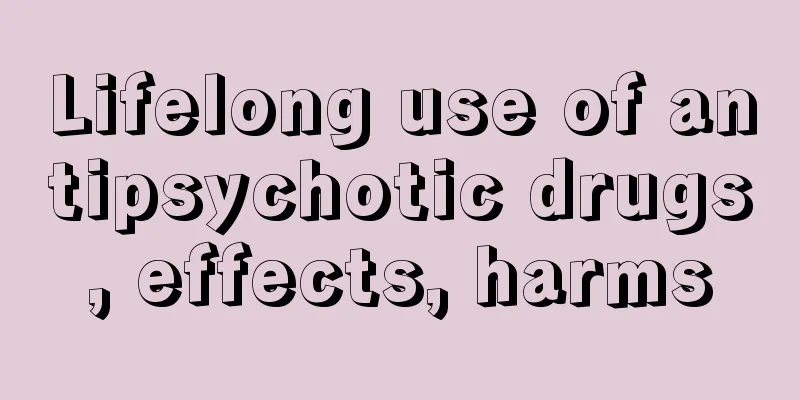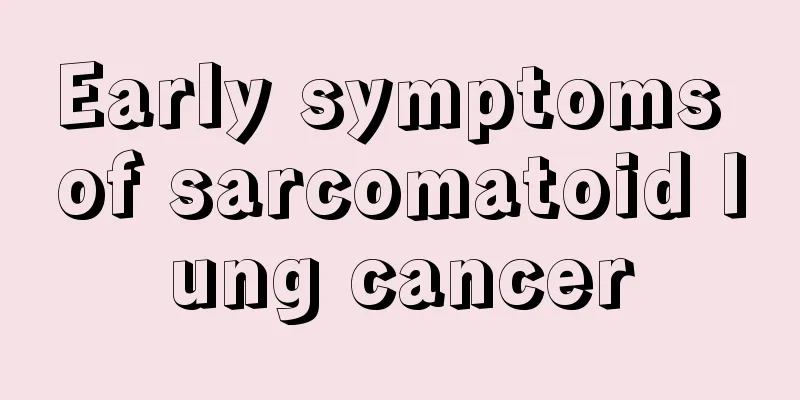Lifelong use of antipsychotic drugs, effects, harms

|
Mental illness is very prone to recurring attacks, and when it occurs, it can cause serious damage to the brain. Currently, there are relatively few treatments for this disease. Many patients often take antipsychotic drugs to maintain their condition. However, if they are taken for life, it will cause great harm to the body. If the dosage is very small, it will not have a suppressive effect. So what are the consequences of taking antipsychotic drugs for life? First, what are the consequences of taking antipsychotic drugs for life? First of all, we should know that if a patient with mental disorder does not take medication, he will have repeated attacks, and each attack will be more severe, and if the attack is too frequent, it cannot be cured. Why is there no cure? Because repeated attacks of mental illness can indeed damage the brain. The clinical use of psychiatric drugs has relieved many patients with mental disorders from suffering. Large randomized, long-term studies of schizophrenia support the view that antipsychotic treatment is effective in preventing relapse of illness. Some data suggest that maintenance antipsychotic treatment results in better "quality of life" compared with discontinuation, and that maintenance treatment is less likely to lead to worsening of schizophrenia or related disorders or to worse clinical outcomes than discontinuation. Second, long-term and high-dose use of traditional antipsychotics can cause problems in the brain. Therefore, few doctors recommend the long-term use of large doses of antipsychotics in clinical practice. Generally speaking, the dose for maintenance treatment is smaller than the dose for acute treatment. Third, in the past, treatments for mental disorders were all based on adequate doses and courses of treatment. However, it was later discovered that high doses during the maintenance period might cause harm to patients, so small-dose maintenance treatments with better safety were chosen. However, small-dose maintenance treatments can also cause some problems, the most common of which is insufficient efficacy. Patients taking large doses have poor compliance, and small doses have poor efficacy. Studies have found that in my country, 49% of schizophrenia patients will relapse within a year even while taking medication. What are the consequences of lifelong use of antipsychotics? Drug treatment mainly affects the symptoms of schizophrenia, but has little effect on brain age; on the contrary, factors of the disease itself, such as the severity of schizophrenia, length of hospitalization, and outcome, are positively correlated with accelerated brain aging, and the degree of brain aging is mainly related to these factors. In addition, lifestyle also has a certain impact |
<<: The dangers of long-term use of essential oil soap
>>: The disadvantages of holding back bowel movements
Recommend
What diseases are easily confused with pituitary tumors
In our usual comfortable life, some people are of...
What to do if lips peel after applying lipstick
Lipstick is an indispensable cosmetic for women t...
Can honey and brown sugar remove spots?
The beauty-enhancing and detoxifying effects of h...
What is the effect of putting ginger in the belly button
Placing ginger around the belly button has certai...
How to prevent lung cancer effectively by staying away from the five qi
The main cause of lung cancer is smoking. Smoking...
Can silica gel be used as a food desiccant?
Food desiccant is a very common thing. Only in th...
Tips for keeping your baby from sleeping
The safe birth of the baby is a great joy for the...
8 places with the most bacteria teach you 8 ways to remove bacteria and prevent viruses
Did you know that pillows, pens, toilets, etc. th...
Is formaldehyde colorless and odorless?
In fact, everyone is aware of formaldehyde, but t...
How to eliminate jaundice in patients with bile duct cancer
When it comes to cancer, I believe that almost ev...
How to effectively remove scars on the face
Having scars on the face is the most self-depreca...
What does Cha Jia Gong mean
The thyroid gland is a very important organ. The ...
What are the symptoms and signs of lung cancer recurrence? Several symptoms of lung cancer recurrence
At the beginning of the 21st century, the World H...
Common cold and AIDS cold
When it comes to colds, everyone thinks that this...
How to kill Toxoplasma gondii effectively
Toxoplasma gondii poses a potential threat to hum...









